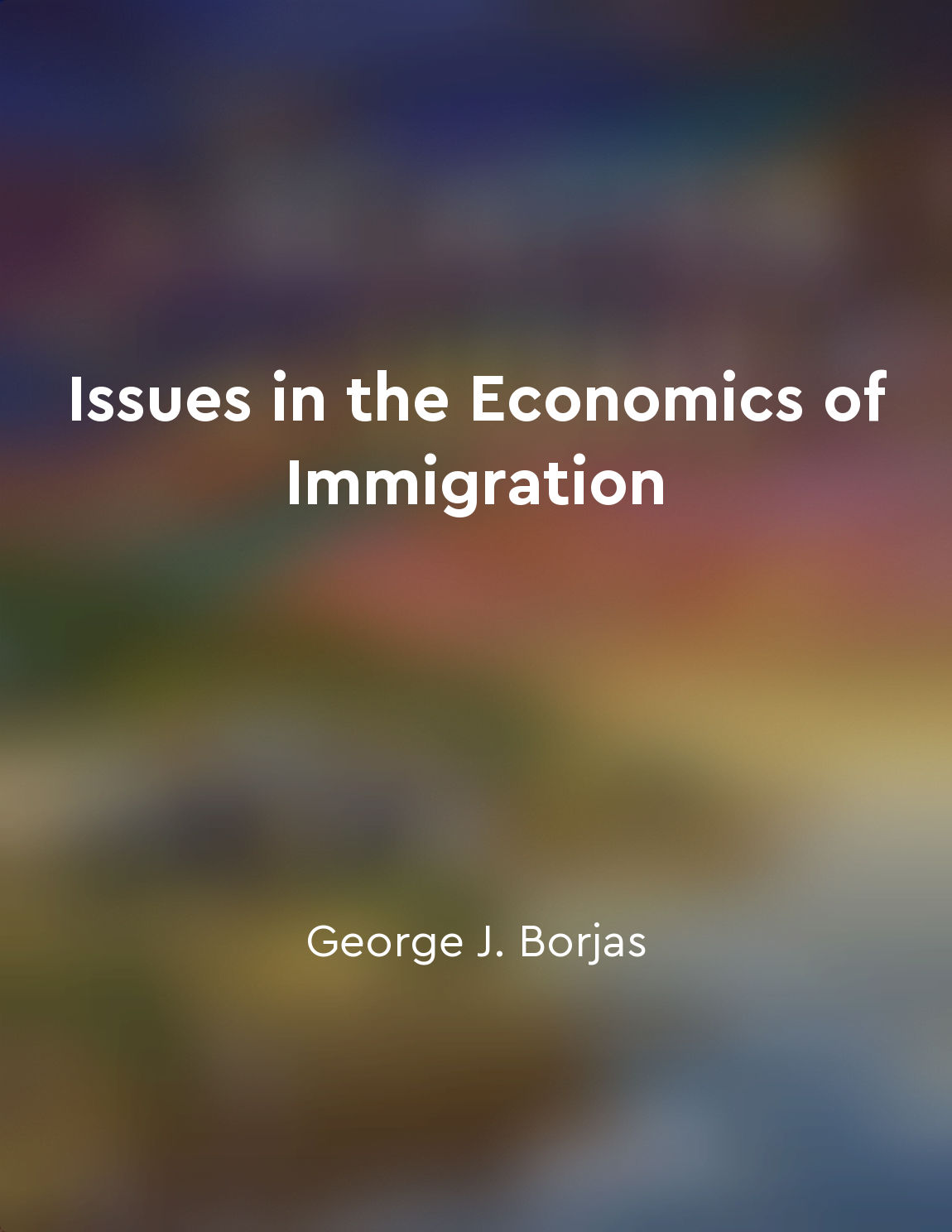The distributional effects of immigration are a key concern from "summary" of Issues in the Economics of Immigration by George J. Borjas
The impact of immigration on the distribution of economic resources within a receiving country is a topic of significant concern in the field of immigration economics. When immigrants enter a country, they bring with them a unique set of skills, abilities, and preferences that can affect the wages and employment opportunities of both native-born workers and other immigrants. One key aspect of this issue is the potential for immigrant workers to compete directly with native-born workers in the labor market. If immigrants possess skills that are similar to those of native-born workers, they may end up competing for the same jobs, leading to a decrease in wages or job opportunities for native workers in certain industries or occupations. Furthermore, the distributional effects of immigration can vary depending on the skill level of the immigrants entering the country. High-skilled immigrants, for example, may be more likely to complement the skills of native workers, leading to overall economic growth and increased wages for both groups. On the other hand, low-skilled immigrants may be more likely to compete directly with native workers, potentially leading to negative impacts on the wages and employment opportunities of low-skilled native workers. In addition to the labor market impacts, immigration can also have distributional effects on public goods and services. For example, an influx of immigrants may put pressure on public services such as education, healthcare, and social welfare programs, potentially leading to increased costs for taxpayers and changes in the availability and quality of these services for both immigrants and native-born residents.- The distributional effects of immigration are a complex and multifaceted issue that requires careful consideration of the various ways in which immigrants interact with native-born workers and society as a whole. By understanding the potential impacts of immigration on the distribution of economic resources, policymakers can better design policies that promote positive outcomes for all members of society.
Similar Posts
Understanding the concept of sustainable development
Sustainable development is a concept that emphasizes the need to meet the needs of the present without compromising the ability...
Identity politics divides society
Identity politics, with its emphasis on group identity and grievances, has become a powerful force in modern society. By focusi...
Economic inequality is a barrier to social mobility
Economic inequality can act as a significant barrier to social mobility in society. When there are large disparities in income ...
Diversity in human societies mirrors biodiversity in ecosystems
Just as the natural world thrives on diversity, so too do human societies. The richness of biodiversity in ecosystems is mirror...
Policies should support human migration for cultural exchange
Policies that facilitate human migration can promote cultural exchange, enriching societies with new ideas, perspectives, and t...

Rule of law is crucial
The concept of the rule of law is crucial to a free society. It provides a framework within which individuals can pursue their ...


